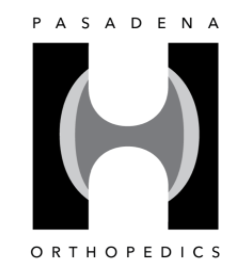Diabetic Wounds & Diabetic Ulcers
- Pasadena Orthopedics, Inc.

- May 5, 2021
- 3 min read
Updated: May 22, 2021

What is wound debridement? Debridement is a procedure used to remove dead, damaged, or infected tissue from wounds. Wound debridement is designed for both acute and chronic wounds. Making sure to get the wound debrided helps to prevent infection. Several clinical studies recommend weekly wound debridement and they have higher rates of wound closure. Before the debridement, the office administers topical lidocaine and/or injectable lidocaine to numb the area and lessen the discomfort which can accompany the procedure.
Why does my wound have to be debrided?
Wounds can heal much faster when dead tissue is not present. Dead tissue frequently traps bacteria which can cause infections.
New tissue cannot grow when dead tissues are present. Hidden pockets of pus could lie under the dead tissue which can also cause an infection.
Infections prevent the wound from healing and can get worse. It can lead to an amputation or a life-threatening condition if it gets into the bloodstream.
Routinely removing dead tissue keeps it clean and will help the wound to grow new tissue.
How will the dead tissue be removed from my wound? There are a few ways to perform the debridement. The doctor may use one or more of them to
remove dead tissue:
Sharp debridement: This can be performed every week. It keeps the wound clean and helps it to heal quicker. The dead tissue is removed with a sharp instrument. A dressing is then applied. Occasionally, a sharp debridement will have to be performed in the operating room.
Autolytic debridement: This pain-free. A moist wound dressing is used in combination with body's ability to destroy dead tissue. This can be performed between visits. When it is used, the doctor may not have to perform a sharp debridement during the next appointment.
Enzymatic debridement: Occasionally called a chemical debridement, this is where medication is used to break down the dead tissues. It can be used in conjunction with a sharp debridement.
Mechanical debridement: Whirlpool, pulse lavage, or wet to dry saline dressings are employed. Healthy and new tissues can be affected however, so this is not used often anymore.
Skin Ulcers Q & A
What is a skin ulcer?
A skin ulcer is an open wound on the skin. It can be caused by infections, by a pressure sore, or by vein problems. Treatments will depend on the cause of the ulcer. Venous skin ulcers, the most common, are shallow wounds which occur when the leg veins don't return blood back toward the heart properly. These ulcers usually form on the lower leg, above the ankle, and beneath the calf.
What causes a skin ulcer?
Venous skin ulcers are caused by inadequate blood circulation, namely venous insufficiency. In venous insufficiency, the valves have been damaged and blood is now backing up and pooling inside the vein. Fluid can then leak out and into the surrounding tissues, resulting in the breakdown of the tissue and an ulcer. Factors that can increase a person’s risk for ulcers include:
Deep vein thrombosis
Obesity
Smoking
Lack of physical activity
Standing for many hours a day
What other types of skin ulcers are there?
Aside from venous skin ulcers, the others that can occur include:
Arterial skin ulcers occur when artery disease is present. These ulcers can be very painful. They are typically on the feet and toes.
Neuropathic skin ulcers are also referred to as diabetic neuropathic ulcers. They develop in those who have little or no feeling in the feet because of diabetic nerve damage.
How are they treated?
Initially, improving blood circulation can help. Patients can try:
Lifting the legs above the heart level frequently.
Wearing compression stockings or bandages to prevent blood from pooling in the legs.
Walking daily to improve blood circulation.
The doctor often performs a debridement to excise dead tissue from the wound. After the ulcer has healed, compression stockings should still be worn, taken off for bathing and sleeping. The doctor may advise additional treatments if needed such as:
Medication to hasten to heal or for an infection such as antibiotics.
Skin grafting, for deep or hard-to-heal ulcers.
Recommend vein surgery, which can keep ulcers from returning.
More questions or would like to make an appointment? Call 626-517-0022.




Comments